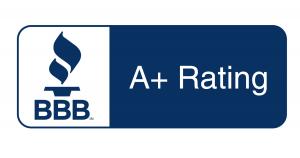Penalties for Possession of Schedule III & IV Drugs

Schedule I drugs have the highest potential for addiction and abuse, while schedule V drugs have the least potential.
What You Need to Know about Schedule III Drugs
Schedule III drugs have a low to moderate potential to be addictive either psychologically or physically. They are classified as moderately dangerous. In the U.S. they are used for medical purposes and can only be obtained by prescription. Some of these drugs include:
- Anabolic steroids
- Ketamine
- Vicodin
- Tylenol with codeine
- Testosterone
What You Need to Know about Schedule IV Drugs
While schedule IV drugs are not as dangerous as schedule III, they do have an abuse potential. They are considered to have a low potential for psychological or physical addiction, so that risk still exists. These drugs are only available by a prescription in the United States and are intended for medical uses. Some of the drugs that fall under this category include:
- Ambien
- Soma
- Ativan
- Xanax
- Talwin
- Darvocet
- Soma
Charges for Possession of Schedule III and IV Drugs in Pittsburgh
Under Pennsylvania law, a person is in possession of a controlled substance when they own it or have it in their possession such as on their person or on their property. If the controlled substance requires a prescription, but the person who is in possession of the drug does not have a valid prescription, they can be charged.
In Pennsylvania, in order for a person to be charged with possession of a controlled substance, the prosecutors must prove that the alleged offender:
- Intentionally and knowingly had control of an illegal drug
- Knew that the drug was illegal and knew it was present
- Had the intention of using or controlling the drug
- Had actual or constructive possession of a controlled substance. This means that the drug was on their person or in a place where they had control over it such as in their vehicle or in their dresser drawer in their bedroom at home
Pennsylvania Penalties for Possession of Schedule III and IV Drugs
If you are caught with the possession of a schedule III or IV drug, the penalty is up to one year in jail and/or a fine not to exceed $5,000. If convicted, your driver’s license will also be suspended. The length of the suspension depends on how many offenses you have:
- First offense: 6 months
- Second offense: 1 year
- Third offense: 2 years
Selling or Intent to Sell Schedule III or IV Drugs
If you are caught with schedule III and IV drugs in your possession, the penalties can be severe. However, if it is determined that you had the drugs in your possession because you were selling them or intended to sell them, the penalties can be even worse.
There are certain factors that will determine the severity of your sentence and the judge will take them into consideration. These include:
- The amount of drugs that you had in your possession
- If there were any weapons present
- If you were near a school when you were caught with the illegal drugs and arrested
- Whether you have any prior convictions
The penalties for selling controlled substances are:
- Schedule III drugs
- Up to five years in prison
- Fine of up to $15,000
- Schedule IV drugs
- Up to three years in prison
- Fine of up to $10,000
What to Do If You Have Been Charged with Possession of a Schedule III or IV Drug
A possession charge is a serious matter. The first thing you should do is hire a lawyer and do not talk to the prosecutors or police until that lawyer is with you. Your attorney will discuss the circumstances surrounding your arrest and the events that led up to it. It is very important that you are honest and provide as much information as possible. Remember, your lawyer is there to help you.
Drug possession charges are a serious matter. If you have been arrested for possession of schedule III or IV drugs, you need a lawyer who will go to bat for you in the courtroom. Call DRK Attorneys and get the help you need. The initial consultation is free. Don’t do this alone; call today.









